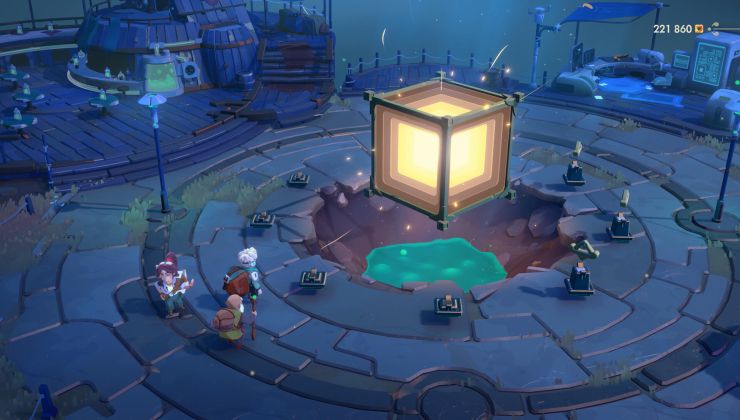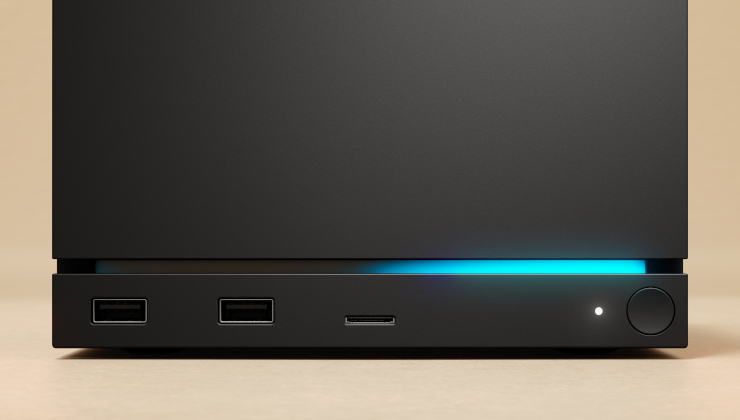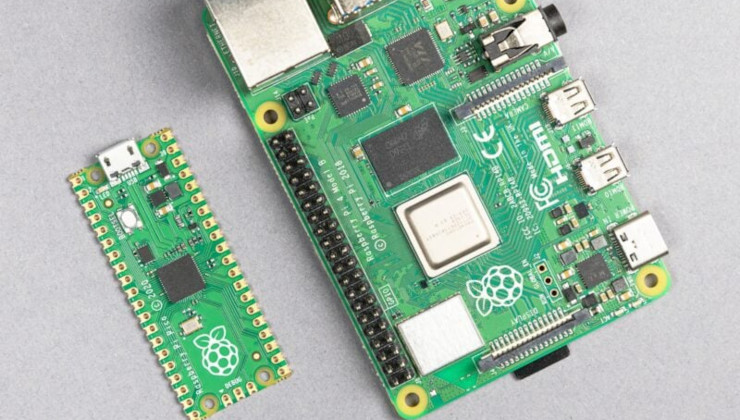During a recent online event the current Microsoft President, Brad Smith, opened up a little bit about open source and their previous failures with it.
Sadly, their history with open source is a rather tumultuous one. Previous Microsoft CEO, Steve Ballmer, famously said years ago how "Linux is a cancer" and no one really forgot. It's interesting now though because of how Microsoft has changed over the years, as they finally warmed up to open source.
In a chat hosted by MIT CSAIL, President Brad Smith mentioned:
Microsoft was on the wrong side of history when open source exploded at the beginning of the century and I can say that about me personally. The good news is that, if life is long enough, you can learn … that you need to change.
They now own GitHub, a website built around code sharing and their own Visual Studio Code editor is also open source under the MIT license. Expanding there, GitHub also recently acquired npm (the company behind Node package manager) too. That's merely scratching the surface, as they're even integrating Linux more and more into Windows itself with their Windows Subsystem for Linux. Heck, they're even going to put their own web browser Edge onto Linux which is now being built with the open source Chromium.
What are your thoughts?
Quoting: epsaavedraI trust Microsoft as much as I trust Google, Oracle or Apple, which is to say very, very little. Unless there is a huge show of support, like opensourcing Windows 7 or Visual Studio, then I'm inclined to think this is just marketing talk.I ll be honest if they open sourced windows 7 i would go back to running windows exclusively as it was windows 10 that got me on linux full time.
That day I will recognize this statement.
Quoting: Whitewolfe80Now that's a good idea, open source older versions of Windows. As a Windows and Linux user that would satisfy me as well as I would have a 100% binary compatible open source OSQuoting: epsaavedraI trust Microsoft as much as I trust Google, Oracle or Apple, which is to say very, very little. Unless there is a huge show of support, like opensourcing Windows 7 or Visual Studio, then I'm inclined to think this is just marketing talk.I ll be honest if they open sourced windows 7 i would go back to running windows exclusively as it was windows 10 that got me on linux full time.
Quoting: TerminusaquoNow this is the perspective I don't get, at all. Why would opening the source of any Windows version make it more attractive to use? NTFS wouldn't suddenly get better. It can never get better because it's dying a death of a thousand cuts. Everything that is horrible about using Windows (drive letters, registry, abysmal userland design, etc) would still be present including the horrible UI/UX design, which can easily be replicated in other desktop environments. There are some positives that could come from Microsoft opening its software stack, but Windows isn't one of them in my opinion; because Linux/GNU (and variations) is already a better OS platform.Quoting: Whitewolfe80Now that's a good idea, open source older versions of Windows. As a Windows and Linux user that would satisfy me as well as I would have a 100% binary compatible open source OSQuoting: epsaavedraI trust Microsoft as much as I trust Google, Oracle or Apple, which is to say very, very little. Unless there is a huge show of support, like opensourcing Windows 7 or Visual Studio, then I'm inclined to think this is just marketing talk.I ll be honest if they open sourced windows 7 i would go back to running windows exclusively as it was windows 10 that got me on linux full time.
This is why I don't evangelize to Windows users much. I want people to use Linux/GNU (and specifically Fedora) because it's a good OS and the user likes how it works. I don't want Linux land flooded with 'permissive open source' Windows users that want to do Windows in Linux. I want to help people learn to do Linux things better, not Windows things better on Linux. That's my personal Linux learning goal as well. That doesn't mean we don't adopt smart ideas from outside, but that we blaze our own way not follow Microsoft, Google, or Apple.
Quoting: 14I've basically been forced to use WSL1 for the past few months, and it's horrible. Even doing things like a simple 'apt update' take forever compared to a real Linux system (VM or otherwise). WSL2, they gave up on it being a kernel supported subsystem, and is instead just a virtual machine using Hyper-V extensions. Which by the requirements I'm currently restricted to is not okay either (and it's basically a VM that won't give you any X applications...)Quoting: F.UltraI don't think so. It's to make it easier to manage Linux services that run on Azure. Now, admins and developers don't have to run a VM. I don't think MS was "losing" anybody to Linux that is now satisfied with WSL.Quoting: LinasAnd I am sure that is why Windows Subsystem for Linux (WSL) exists. Not because they actually want their users to use Linux, but because they know that they lost to Linux in the server market, and cannot pull off a compelling Windows-proper alternative.I'm quite sure that WSL only exists in order to keep Linux Server developers and Administrators using the Windows desktop, and not loosing them to a Linux desktop like they lost on the server side.
So WSL is probably really only meant as a way to get a more native version of bash /ssh, etc. doing anything beyond just that is rather painful.
I am one of the people who are not buying to Microsoft story.
To say, they have developed a Linux subsystem, what does that mean?
Who uses Linux subsystem and for what?
In the web world, solutions are built on top of open-source. They talk of a LAMP software stack.
That stands for Linux, Apache, MySQL and PHP (and I can add WordPress).
Quoting: 14In all the places where I have worked where we used Linux servers all of us Linux devs where running Linux desktops. With WSL I'm quite certain that a huge proportion of them have been forced to work on Windows Desktops by IT/Management.Quoting: F.UltraI don't think so. It's to make it easier to manage Linux services that run on Azure. Now, admins and developers don't have to run a VM. I don't think MS was "losing" anybody to Linux that is now satisfied with WSL.Quoting: LinasAnd I am sure that is why Windows Subsystem for Linux (WSL) exists. Not because they actually want their users to use Linux, but because they know that they lost to Linux in the server market, and cannot pull off a compelling Windows-proper alternative.I'm quite sure that WSL only exists in order to keep Linux Server developers and Administrators using the Windows desktop, and not loosing them to a Linux desktop like they lost on the server side.
PuTTY already existed for the people administrating Linux servers from Windows, if that is all that Microsoft where reaching for then why spend the vast amount of time and resources that they have with WSL?
So them admiting they were wrong about open source is a matter of them going back on the decision to share their code. It's not going back on anything else. Many of their apps are either not supported or lacking on Linux. And they stand in the way for desktop Linux to progress. Do you all really believe DX12 Ultimate is a coincedence? In a time when Vulkan is being utilizied (Switch, Android, Proton, Stadia). Gaming is important aspect to get marketshare, and Vulkan being widely used on PC will power up gamng on Linux significantly. With more marketshare more games and apps will come to Linux.
[
They don't love Linux](https://core0.staticworld.net/images/article/2014/12/satya-nadella-microsoft-loves-linux-100535061-orig.jpg). The notion that they do is bordering on propaganda. They simply love the parts of Linux that helps their business.
They may conclude that it was a strategic error. That it made it more difficult to co-opt, steal and destroy. But I don't think even they themselves think they were wrong as such, and will now make a 180 degree turn. They're still the Spawn of Satan as far as I'm concerned :P
Many tech companies in that category these days, though, so it's not terribly high "praise".
Quoting: slaapliedjeThankfully, I do not have to use WSL. I tried it a year or two ago and was fed up with it really fast. Running a VM on my desktop is a bit annoying, but it's overall way better to me.Quoting: 14I've basically been forced to use WSL1 for the past few months, and it's horrible. Even doing things like a simple 'apt update' take forever compared to a real Linux system (VM or otherwise). WSL2, they gave up on it being a kernel supported subsystem, and is instead just a virtual machine using Hyper-V extensions. Which by the requirements I'm currently restricted to is not okay either (and it's basically a VM that won't give you any X applications...)Quoting: F.UltraI don't think so. It's to make it easier to manage Linux services that run on Azure. Now, admins and developers don't have to run a VM. I don't think MS was "losing" anybody to Linux that is now satisfied with WSL.Quoting: LinasAnd I am sure that is why Windows Subsystem for Linux (WSL) exists. Not because they actually want their users to use Linux, but because they know that they lost to Linux in the server market, and cannot pull off a compelling Windows-proper alternative.I'm quite sure that WSL only exists in order to keep Linux Server developers and Administrators using the Windows desktop, and not loosing them to a Linux desktop like they lost on the server side.
So WSL is probably really only meant as a way to get a more native version of bash /ssh, etc. doing anything beyond just that is rather painful.
Quoting: randylNow this is the perspective I don't get, at all. Why would opening the source of any Windows version make it more attractive to use?Windows being proprietary closed-source OS is often mentioned as an argument in favor of using FOSS, so I guess it "could" make it more attractive, especially if you can see (and "fix") potential spywares.
Quoting: randylEverything that is horrible about using Windows (drive letters, registry, abysmal userland design, etc) would still be present including the horrible UI/UX design, which can easily be replicated in other desktop environments.This is something I do not understand when Linux users speak about Windows. And, I would like to point out that, while I am quoting your post, I have nothing against you in particular, it is just some trend I observe quite often in some Linux "die-hard fans".
But, how is Windows drive letters system bad ? It help keeping things tidy (when I install a game, I want to install it on my SSD drive, but when I am downloading, say, a Linux iso, I want to have it on my big capacity hard drive). On Linux, I struggle trying to get games installed on the right physical disks.
About the registry (that I never have had to use in years of using Windows, it is only required for very specific tweaks), how is that worse than tinkering with conf files scattered everywhere ?
It seems to me that people aren't being fair when comparing Linux to Windows (or any OS to any other OS, for that matters), and I am not sure how it is being helpful to anyone ? :huh:
Quoting: furaxhornyxIt's a personal preference. All of those things I mentioned are real issues regardless whether you have experience with them or not.Quoting: randylNow this is the perspective I don't get, at all. Why would opening the source of any Windows version make it more attractive to use?Windows being proprietary closed-source OS is often mentioned as an argument in favor of using FOSS, so I guess it "could" make it more attractive, especially if you can see (and "fix") potential spywares.
Quoting: randylEverything that is horrible about using Windows (drive letters, registry, abysmal userland design, etc) would still be present including the horrible UI/UX design, which can easily be replicated in other desktop environments.This is something I do not understand when Linux users speak about Windows. And, I would like to point out that, while I am quoting your post, I have nothing against you in particular, it is just some trend I observe quite often in some Linux "die-hard fans".
But, how is Windows drive letters system bad ? It help keeping things tidy (when I install a game, I want to install it on my SSD drive, but when I am downloading, say, a Linux iso, I want to have it on my big capacity hard drive). On Linux, I struggle trying to get games installed on the right physical disks.
About the registry (that I never have had to use in years of using Windows, it is only required for very specific tweaks), how is that worse than tinkering with conf files scattered everywhere ?
It seems to me that people aren't being fair when comparing Linux to Windows (or any OS to any other OS, for that matters), and I am not sure how it is being helpful to anyone ? :huh:
And I am a full time Windows user (at work) as much as I'm a Fedora user (at home) so I am commenting from experience not philosophy. If someone doesn't get why Linux is better at all the things you mentioned, then please have them keep using Windows.
You quoted me out of context. The person I replied to seems to think that opening the source of Windows would somehow make it all better. I'm pointing out that it won't because all those flaws are engineered by design and can't just be ripped out and coded over; how Windows itself works wouldn't change much from opening the source.
Quoting: randylIt's a personal preference. All of those things I mentioned are real issues regardless whether you have experience with them or not.The problem with people pointing out those issues (in general, not you specifically) is that they seem to forget that there are also issues with Linux (e.g. conf files vs registry, drive letters vs folders, etc).
And I am a full time Windows user (at work) as much as I'm a Fedora user (at home) so I am commenting from experience not philosophy. If someone doesn't get why Linux is better at all the things you mentioned, then please have them keep using Windows.
Quoting: randylYou quoted me out of context. The person I replied to seems to think that opening the source of Windows would somehow make it all better. I'm pointing out that it won't because all those flaws are engineered by design and can't just be ripped out and coded over; how Windows itself works wouldn't change much from opening the source.If, instead of the end of support of Windows 7, Microsoft had made it open source (so that the support could be done by users) as someone else suggested, I probably would still be using Windows 7 (and have all my stuff work flawlessly). But since the alternative was Windows 10, well... ^_^
Quoting: furaxhornyxBut, how is Windows drive letters system bad ? It help keeping things tidy (when I install a game, I want to install it on my SSD drive, but when I am downloading, say, a Linux iso, I want to have it on my big capacity hard drive). On Linux, I struggle trying to get games installed on the right physical disks.On Linux, everything is reachable from a single point, "/". On Windows, it's not. You seem to see that as an advantage, but what if the drive letters are used up? (Yes, I've been at least close to this.) You still can easily mount your physical drives or partitions under /B/, /C/, etc in Linux if you want to... But you've got infinite possibilities - not 26.
Quoting: furaxhornyxAbout the registry (that I never have had to use in years of using Windows, it is only required for very specific tweaks), how is that worse than tinkering with conf files scattered everywhere ?Could you please copy me your configuration of program X? It's complicated and I really like the way you did it. Well it's scattered over places in the registry (which AFAIR is in several physical files). It's under /etc/Xapp on Linux, copy the file and fine. You want to make a backup of your whole system configuration? cp --recursive /etc /somewhereelse. (That was how I moved from 32 bit to 64 bit Linux back in the days.) How do you do that with the registry? I don't know. Additionally, configuration files are a thing on Windows, too, they're just scattered around the place. (Yes, Linux user configuration files do not all follow the standard either.)
Last edited by Eike on 21 May 2020 at 7:32 pm UTC
Quoting: EikeNot everything is better on Linux, but IMHO, the points you mention are.I do not fully agree with the "you can still easily mount your physical drives [...]", since I recently change a dead hard drive and it took me a good 20 minutes to figure out how to mount it to /games and have it recognized after a reboot... Still, you can also mount drives or partitions in Windows as folders, too, so you are not limited to 26 mounted drives either.
Quoting: furaxhornyxBut, how is Windows drive letters system bad ? It help keeping things tidy (when I install a game, I want to install it on my SSD drive, but when I am downloading, say, a Linux iso, I want to have it on my big capacity hard drive). On Linux, I struggle trying to get games installed on the right physical disks.On Linux, everything is reachable from a single point, "/". On Windows, it's not. You seem to see that as an advantage, but what if the drive letters are used up? (Yes, I've been at least close to this.) You still can easily mount your physical drives or partitions under /B/, /C/, etc in Linux if you want to... But you've got infinite possibilities - not 26.
Also, If I want to make a backup of my system "/", I am not sure if all my "/home" and "/games" content will be copied too (resulting in a huge backup file, I guess). With letters for separate partitions, I find it easier.
Quoting: EikeUnless you have a specific "program X" in mind, I do not know know of any program which configuration is stored in the registry ? Usually the files are within the program folder directly, or in My documents folder (equivalent to /home).Quoting: furaxhornyxAbout the registry (that I never have had to use in years of using Windows, it is only required for very specific tweaks), how is that worse than tinkering with conf files scattered everywhere ?Could you please copy me your configuration of program X? It's complicated and I really like the way you did it. Well it's scattered over places in the registry (which AFAIR is in several physical files). It's under /etc/Xapp on Linux, copy the file and fine. You want to make a backup of your whole system configuration? cp --recursive /etc /somewhereelse. (That was how I moved from 32 bit to 64 bit Linux back in the days.) How do you do that with the registry? I don't know.
I still have some program that I used in the late 90s, made for Windows 98, that I can still use without reinstalling anything, and despite changing / reinstalling / changing Windows version (and hard drives) over the years. And if you really need the registry part, it can be exported quite easily.
So, in all fairness, I am not sure as how those different behaviours qualify as issues on the Windows side.
Quoting: furaxhornyxI do not fully agree with the "you can still easily mount your physical drives [...]", since I recently change a dead hard drive and it took me a good 20 minutes to figure out how to mount it to /games and have it recognized after a reboot...You don't even need to fiddle with config files (like /etc/fstab), there's tools for it in the KDE system settings or as Gnome "discs" (not 100% sure about the name). So, I still think it's easy to mimic what Windows does if you find it superior.
Quoting: furaxhornyxStill, you can also mount drives or partitions in Windows as folders, too, so you are not limited to 26 mounted drives either.Yes, some decades after Unix/Linux, Windows did adopt the possibility AFAIR. (Probably not because drive letters are better, BTW.) But if you're happier with letters, you're still stuck with 26 of them.
Quoting: furaxhornyxAlso, If I want to make a backup of my system "/", I am not sure if all my "/home" and "/games" content will be copied too (resulting in a huge backup file, I guess). With letters for separate partitions, I find it easier.If you want to make a backup, you need to know what you want to copy and where that is. Which is even harder on a modern Windows. Did you know that Windows merges directories "behind the curtain" and shows them as a single one to you? How would you copy that and restore it a similar way?
Quoting: furaxhornyxUnless you have a specific "program X" in mind, I do not know know of any program which configuration is stored in the registry ? Usually the files are within the program folder directly, or in My documents folder (equivalent to /home).I don't have statistics here, but I think many programs store stuff in the registry. You can try with a handful if you like and search for their name in the registry. You might be surprised... But when you say "usually the files are within the program folder directly, or in My documents folder (equivalent to /home)" - how is this less scattered than /etc/?
Quoting: furaxhornyxI still have some program that I used in the late 90s, made for Windows 98, that I can still use without reinstalling anything, and despite changing / reinstalling / changing Windows version (and hard drives) over the years. And if you really need the registry part, it can be exported quite easily.If you know that it exists in the first place, if it actually is a single place, ... Hardly easier than copying /etc/Xapp, is it?
Quoting: furaxhornyxSo, in all fairness, I am not sure as how those different behaviours qualify as issues on the Windows side.Please don't take it personally, but to me it seems more a matter of "I don't know how to"/"I'm not accustomed to it" - which is all ok, but not really Linux' fault. (Neither yours, everybody was new to everything at some point of time.)










 How to setup OpenMW for modern Morrowind on Linux / SteamOS and Steam Deck
How to setup OpenMW for modern Morrowind on Linux / SteamOS and Steam Deck How to install Hollow Knight: Silksong mods on Linux, SteamOS and Steam Deck
How to install Hollow Knight: Silksong mods on Linux, SteamOS and Steam Deck